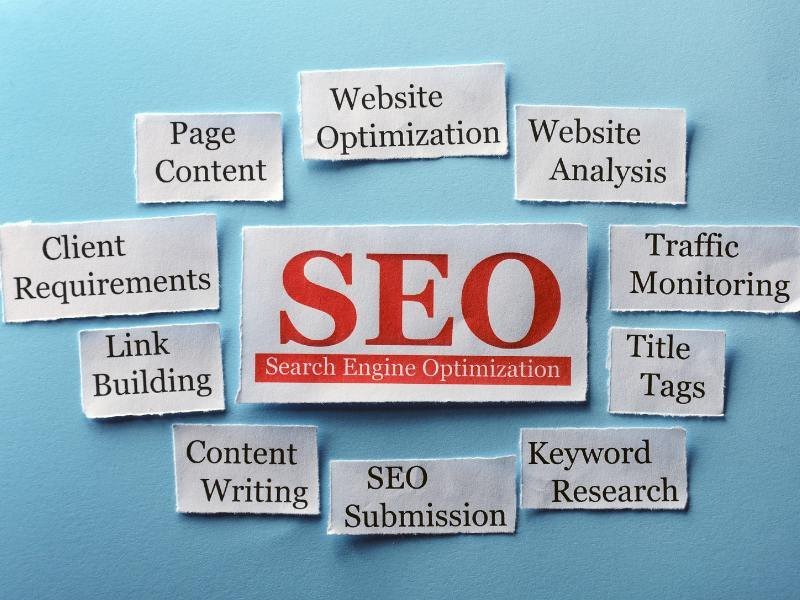If you’ve ever wondered how websites appear at the top of Google search results, the answer lies in Search Engine Optimization (SEO). In this blog, we’ll break down exactly how SEO works, why it matters, and how you can use it to increase your visibility and traffic online.
What is Search Engine Optimization?

Search Engine Optimization (SEO) is the process of improving your website to increase its visibility on search engines like Google, Bing, and Yahoo. When your pages appear higher in search results, you’re more likely to attract clicks, visitors, and conversions. SEO is not a one-time fix, it’s an ongoing strategy that involves optimizing different parts of your website to align with what search engines look for.
How Search Engines Work
Types of Ads You Can Create
Before diving into SEO, it helps to understand how search engines operate. Here are three key steps in how search engines deliver results:
1. Crawling: Search engines use bots (called crawlers or spiders) to scan websites and collect data.
2. Indexing: This information is stored in a massive database (called the index), which search engines pull from when users type a query.
3. Ranking: Search engines use algorithms to decide which pages best match a user’s query and display the most relevant ones at the top.
SEO helps your site become easier to crawl, index and rank.
Key Components of SEO
On-page SEO

On-page SEO refers to the optimization done on your website pages. This includes:
- Keyword Optimization: Using relevant keywords naturally in your content.
- Meta Tags: Crafting compelling meta titles and descriptions.
- Header Tags (H1, H2, H3): Structuring content with readable and organized headings.
- Image Alt Text: Describing images so search engines understand them.
- Internal Linking: Linking to other relevant pages on your site.
Off-page SEO

Off-page SEO focuses on building your site’s authority and credibility through external factors:
- Backlinks: Earning links from reputable websites.
- Social Signals: Shares, likes, and mentions on social media.
- Brand Mentions: Online mentions of your business across the web.
Technical SEO

This involves optimizing the backend of your site for search engine bots:
- Website Speed: Faster loading improves user experience and rankings.
- Mobile-Friendliness: Google prioritizes mobile-first indexing.
- Secure Site (HTTPS): Secure sites are ranked higher than unsecured ones.
- XML Sitemaps: Help search engines navigate your site structure easily.
Why SEO Matters in 2025
SEO continues to evolve and in 2025, it’s more important than ever. With AI-driven search algorithms, voice search, and user experience playing a major role in rankings, businesses that invest in SEO are more likely to stay ahead of the competition.
Key benefits include:
– Increased Visibility🚀
– More Organic Traffic📈
– Higher ROI than Paid Ads💰
– Stronger Credibility and Trust🤝
How to Start Optimizing Your Website
Here are some practical steps to get started:
1. Do Keyword Research using tools like Google Keyword Planner or Ubersuggest.
2. Create Quality Content that addresses your audience’s needs.
3. Optimize On-Page Elements like titles, headings, and images.
4. Build Backlinks through guest posts or partnerships.
5. Track Performance using Google Analytics and Search Console.
Conclusion
Search engine optimization is the backbone of any successful online presence. By understanding how SEO works and implementing best practices, you can boost your website’s visibility, attract qualified leads, and grow your business in 2025 and beyond.
Start optimizing today because if you’re not on Google’s first page, you’re missing out on customers.
Frequently Asked Questions (FAQs)
1. What is SEO and why is it important?
SEO improves your website’s visibility on search engines, helping attract more traffic, leads and long-term business growth.
2. How do search engines decide which sites to rank first?
Search engines crawl, index, and rank websites based on content relevance, quality and technical performance.
3. What’s the difference between on-page and off-page SEO?
On-page SEO optimizes your content and structure; off-page SEO builds credibility through backlinks, social shares and brand mentions.
4. Is technical SEO really necessary?
Yes, technical SEO ensures fast loading, mobile-friendliness, and proper indexing – all essential for higher rankings.
5. How can I start doing SEO for my website?
Begin with keyword research, optimize your content, improve site speed, and track progress using tools like Google Analytics.


